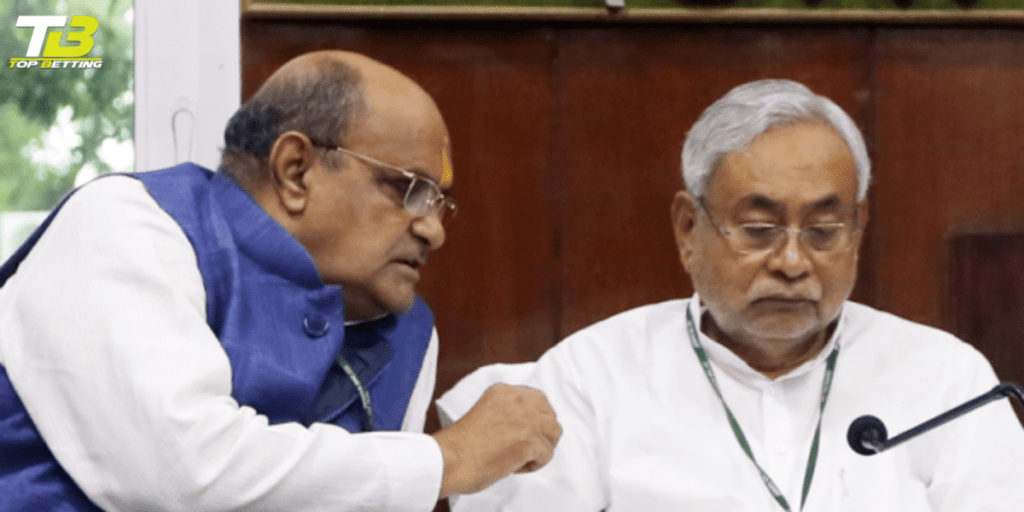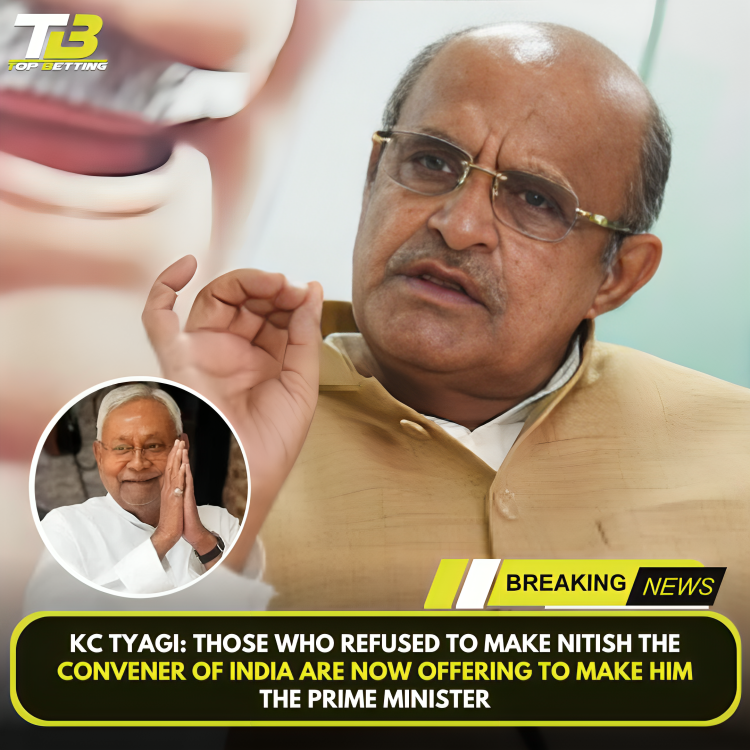
Nitish Now Considered for Prime Ministerial Role, Says KC Tyagi
In the dynamic and ever-evolving landscape of Indian politics, the journey of Nitish Kumar, the Chief Minister of Bihar, has been marked by a series of remarkable twists and turns. Once considered an outsider by the influential INDIA bloc, Kumar has now emerged as a potential Prime Ministerial candidate, according to his party’s national spokesperson, K.C. Tyagi. This unexpected development underscores the fluid nature of Indian politics and the shifting power dynamics that can reshape the political landscape.
Nitish Kumar’s Rejection by the INDIA Bloc
Tyagi’s revelation that the INDIA bloc, which had earlier “refused” to make Nitish Kumar its national convenor, is now “making offers to make Nitish PM” is a testament to the dynamic nature of Indian politics. This rejection, as Tyagi suggests, was due to the “ill-treatment” that Nitish Kumar faced from the Congress and other parties within the INDIA bloc. The decision to sideline Kumar, who was instrumental in the idea of the INDIA bloc, highlights the complex power struggles and shifting alliances that characterize the Indian political arena.
Nitish Kumar’s Return to the NDA
Faced with the “ill-treatment” from the INDIA bloc, Nitish Kumar was “forced to return” to the National Democratic Alliance (NDA) in January of this year. Tyagi emphasizes that there is “no question of looking back” for Kumar, who is now a “valued partner of the NDA” and is committed to “strengthening the hands of Narendra Modi, who is all set to become Prime Minister for the third straight term.”
The Restoration of Nitish Kumar’s Respectability
Tyagi’s remarks suggest that Nitish Kumar’s return to the NDA has restored his “respectability” and made him a “stakeholder in national politics.” This is a significant shift from the earlier rejection by the INDIA bloc, which had “pushed [Kumar] aside.” The JD(U) leader’s newfound status within the NDA alliance is a testament to the dynamic nature of Indian politics and the ability of political actors to adapt and reinvent themselves.
Potential Ministerial Berths for JD(U) Leaders
The article also hints at the possibility of several JD(U) leaders, including Rajya Sabha MP Sanjay Kumar Jha, Rajya Sabha MP and EBC leader Ramnath Thakur, Jhanjharpur MP Rampreet Mandal (EBC), and Valmiki Nagar MP (OBC Kushwaha), being considered for Union ministerial positions. This suggests that the JD(U)’s alliance with the NDA has not only restored Nitish Kumar’s political standing but also opened up new opportunities for the party’s leadership to play a more prominent role in national politics.
The Significance of Nitish Kumar’s Potential Prime Ministerial Candidacy
The prospect of Nitish Kumar being considered as a potential Prime Ministerial candidate by the INDIA bloc, despite their previous rejection of him, underscores the dynamic nature of Indian politics. This development highlights the fluid nature of political alliances and the ability of political actors to adapt and evolve in response to changing circumstances. It also suggests that Nitish Kumar political stock has risen significantly, making him a force to be reckoned with on the national stage.
Nitish Kumar’s Political Journey: From Regional to National Prominence
Nitish Kumar’s journey from being a regional leader to a potential Prime Ministerial candidate is a testament to his political acumen and ability to navigate the complex landscape of Indian politics. His return to the NDA and the restoration of his “respectability” within the alliance suggest that he has managed to position himself as a key player in the national political arena.
The Implications of Nitish Kumar’s Potential Prime Ministerial Candidacy
The possibility of Nitish Kumar being considered as a Prime Ministerial candidate by the INDIA bloc has significant implications for the political landscape in India. It suggests that the INDIA bloc may be seeking to broaden its appeal and attract new allies, potentially recognizing the need to present a more diverse and inclusive leadership team to challenge the dominance of the NDA.
The Challenges Facing Nitish Kumar
Despite the recent developments, Nitish Kumar still faces significant challenges in his quest for national prominence. The INDIA bloc’s previous rejection of him and the complex power dynamics within the alliance may continue to pose obstacles to his aspirations. Additionally, his alliance with the NDA and the BJP may also be viewed with skepticism by some segments of the electorate, particularly those who are critical of the BJP’s policies and ideological leanings.
Nitish Kumar’s Potential Impact on Indian Politics
Nitish Kumar’s potential rise to the national stage as a Prime Ministerial candidate could have significant implications for the future of Indian politics. His leadership could bring a new perspective and approach to governance, potentially addressing regional concerns and fostering greater cooperation between the center and the states. However, the success of his candidacy will ultimately depend on his ability to navigate the complex political landscape and build a broad-based coalition of support.
The Evolving Role of Regional Parties in Indian Politics
The Nitish Kumar saga also highlights the evolving role of regional parties in Indian politics. Once considered to be marginal players, regional parties like the JD(U) have now emerged as crucial power brokers, capable of shaping the national political discourse. This shift underscores the need for national parties to engage with and accommodate the concerns of regional stakeholders in order to maintain their hold on power.

Conclusion
The story of Nitish Kumar’s potential Prime Ministerial candidacy is a testament to the fluidity of Indian politics. It demonstrates the ability of political actors to adapt, reinvent themselves, and seize new opportunities in the ever-changing landscape of Indian democracy. As the nation prepares for the next round of elections, the role of regional parties and the dynamics of national-regional alliances will undoubtedly be a key focus of attention, with Nitish Kumar’s journey serving as a prime example of the complexities and possibilities that define the Indian political arena.











